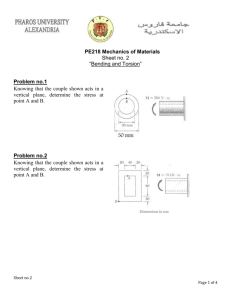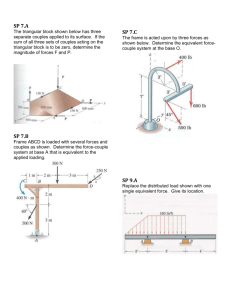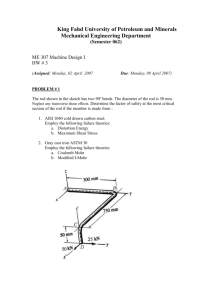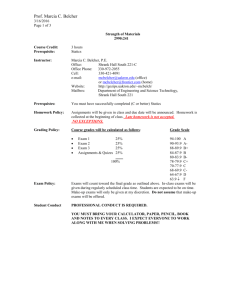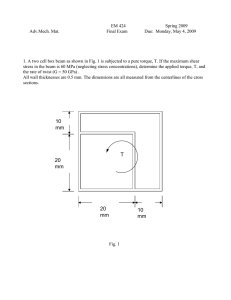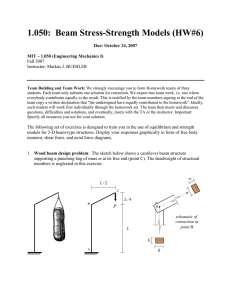Lecture Slides-wk05
advertisement
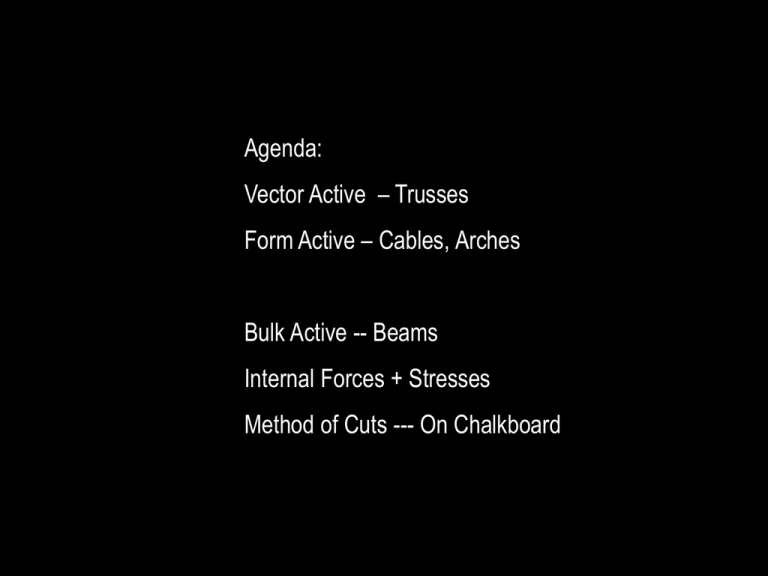
Agenda: Vector Active – Trusses Form Active – Cables, Arches Bulk Active -- Beams Internal Forces + Stresses Method of Cuts --- On Chalkboard Vector Active Structures: Utilize triangulation coupled with tension and compression to resist loads. The “depth” of a VAS is directly related to its ability to span a given distance. Deeper translates to lower forces and longer spans. Form Active Structures: Utilize their geometric shape / form to resist loads. The “effective depth” of a FAS is directly related to its ability to span a given distance. Deeper translates to lower forces and longer spans. Bulk Active - Beams + SM = 0 + Rotational Equilibrium Vertical Equilibrium + SFy = 0 Vertical Equilibrium SFy = 0 + shear deformation Vertical Equilibrium SFy = 0 SHEAR STRESS SHEAR + bending deformation SM = 0 Rotational Equilibrium C T BENDING STRESS (tens/comp) Force Couple Bending Moment Force x lever arm fibers shorten f i b e r s neutral axis, no change in length link to beam bending animation e l o n g a t e Shear Diagram Moment Diagram link to diagram animation Shear Stresses Flexural Stresses vv shear diagram. vv shear diagram. vv shear diagram. depth Bulk Active Structures: A beam’s ability to span is based upon the amount of bulk (material) it has and exactly how this material is distributed relative to its cross-section. BEAM DEPTH IS CRITICAL Method of Cuts --- Surgery with Free Body Diagrams
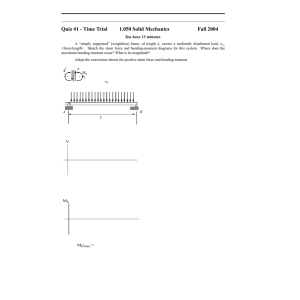
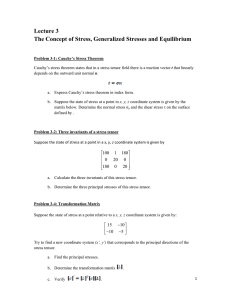
![Applied Strength of Materials [Opens in New Window]](http://s3.studylib.net/store/data/009007576_1-1087675879e3bc9d4b7f82c1627d321d-300x300.png)
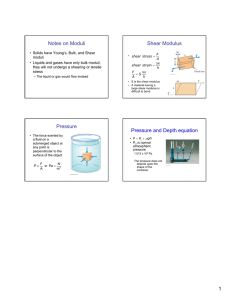

![Strength of Materials [Opens in New Window]](http://s2.studylib.net/store/data/009980952_1-af573ee3f319ca71dbd5b53d99fdf436-300x300.png)
